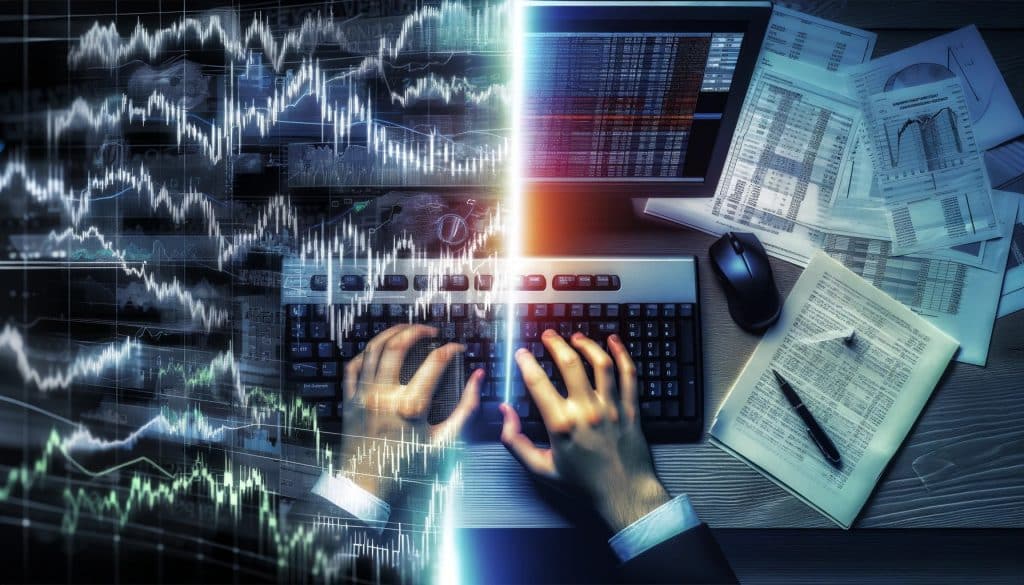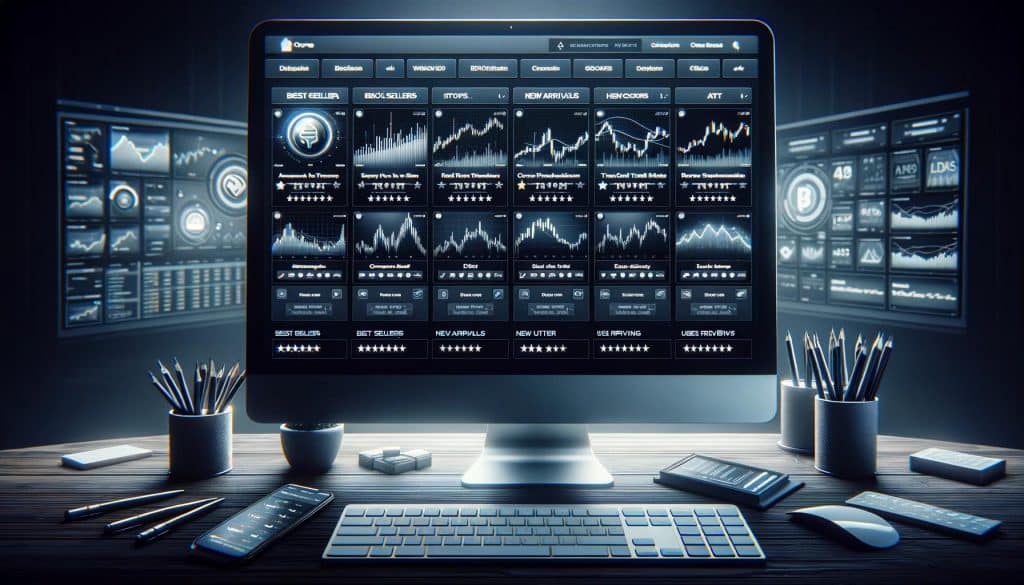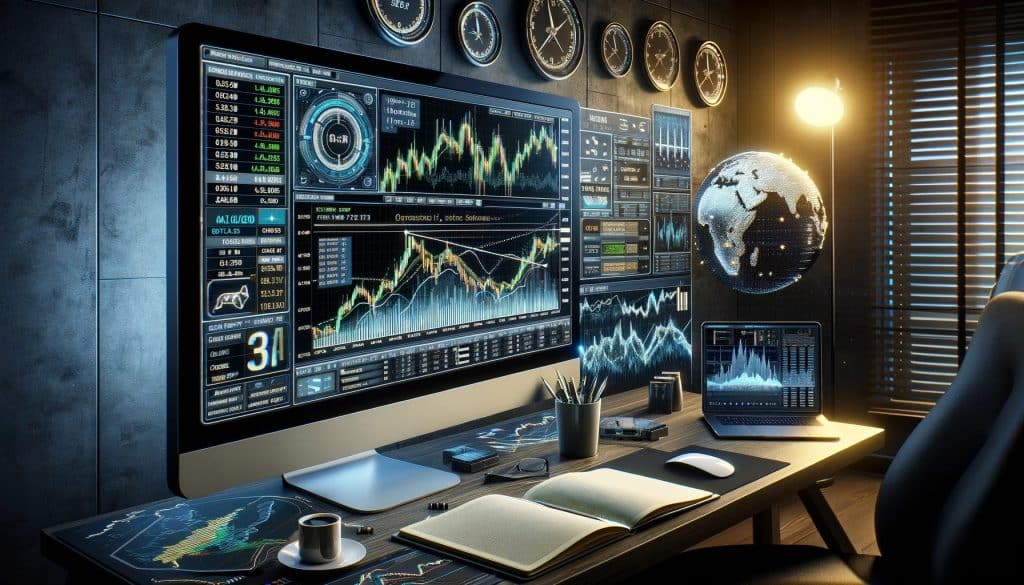In the quest to optimize trading strategies within the financial markets, the debate between “Automated Trading vs Manual Trading” stands out as a pivotal consideration for traders worldwide. This distinction shapes not only the operational aspect of trading but also influences decision-making processes, risk management, and ultimately, profitability. Finding the right balance between automated trading systems and manual trading tactics can be a game-changer, offering traders a unique blend of precision, efficiency, and personal touch. Through a thorough exploration of both methodologies, this article aims to illuminate the path towards a harmonized trading approach, tailored to individual preferences and market dynamics.
Introduction: Understanding the Landscape
The trading world is diverse, with strategies ranging from the highly analytical and automated to the intuitive and manual. The choice between automated and manual trading is not just a matter of preference but a strategic decision that can significantly influence a trader’s success and lifestyle. This introduction sets the stage for a comprehensive exploration of both worlds, highlighting the importance of understanding the broader market landscape to make informed trading decisions.
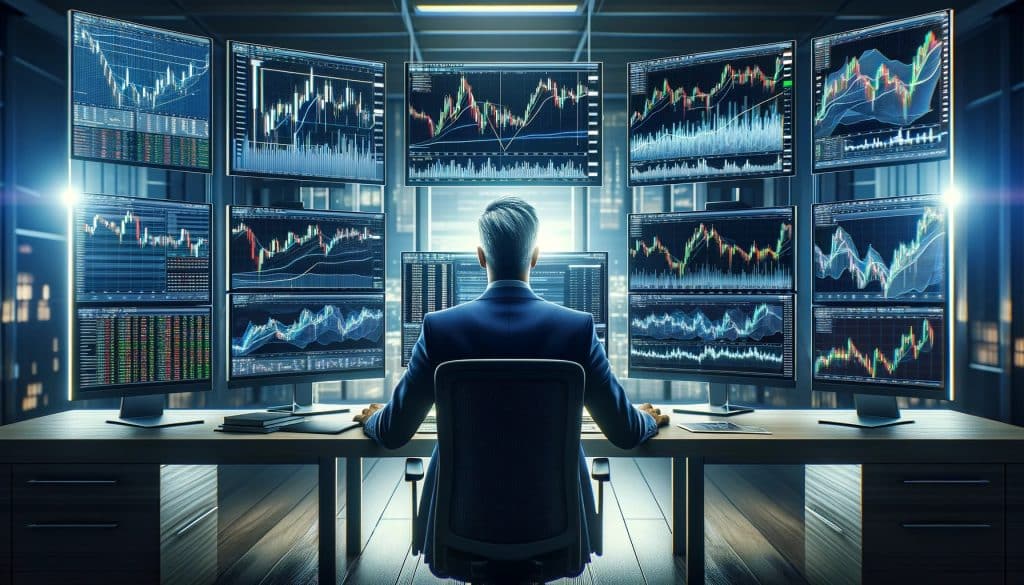
The Essence of Automated Trading
What is Automated Trading?
Automated trading utilizes algorithms and computer programs to execute trades based on predefined criteria. This method leverages technology to make decisions, often analyzing data and executing trades at a speed and frequency that far surpass human capabilities.
Example: Consider a trader using an automated system designed to execute trades based on specific market indicators, such as moving averages or RSI levels. When these indicators align with the predefined criteria, the system automatically executes buy or sell orders, potentially capitalizing on opportunities the trader might miss manually.
Pros of Automated Trading
- Speed and Precision: Automated systems can process vast datasets and execute trades within milliseconds, a crucial advantage in volatile markets.
- Emotionless Decisions: These systems operate without fear or greed, reducing the risk of emotionally driven decisions.
- Backtesting Abilities: Traders can test strategies using historical data to ensure effectiveness before live implementation.
Cons of Automated Trading
- Lack of Discretion: Automated systems follow their programming strictly and cannot interpret contextual nuances or unexpected market events as a human might.
- Technical Failures: Reliance on technology means that software or hardware failures can disrupt trading or lead to losses.
- Overfitting Risk: There’s a danger in creating systems that perform well on past data but fail to adapt to new market conditions.
The Dynamics of Manual Trading
What is Manual Trading?
Manual trading involves traders making all trading decisions based on their analysis, intuition, and experience, without the aid of algorithms.
Example: A manual trader might watch the news for geopolitical events that could affect currency values and decide to buy or sell based on their analysis of the situation’s potential impact on the markets.
Pros of Manual Trading
- Flexibility and Intuition: Human traders can adapt to changing market conditions and interpret nuanced information beyond raw data.
- Greater Control: Traders have complete discretion over their trades, allowing for dynamic decision-making.
- Emotional Satisfaction: The hands-on approach and the success of well-made decisions can be deeply rewarding.
Cons of Manual Trading
- Emotional Bias: Emotions like fear and greed can lead to impulsive decisions, potentially undermining a trading strategy.
- Time-Consuming: Constantly monitoring markets and making decisions requires significant time and effort.
- Inconsistency: Human error and variability in decision-making can lead to inconsistent trading outcomes.
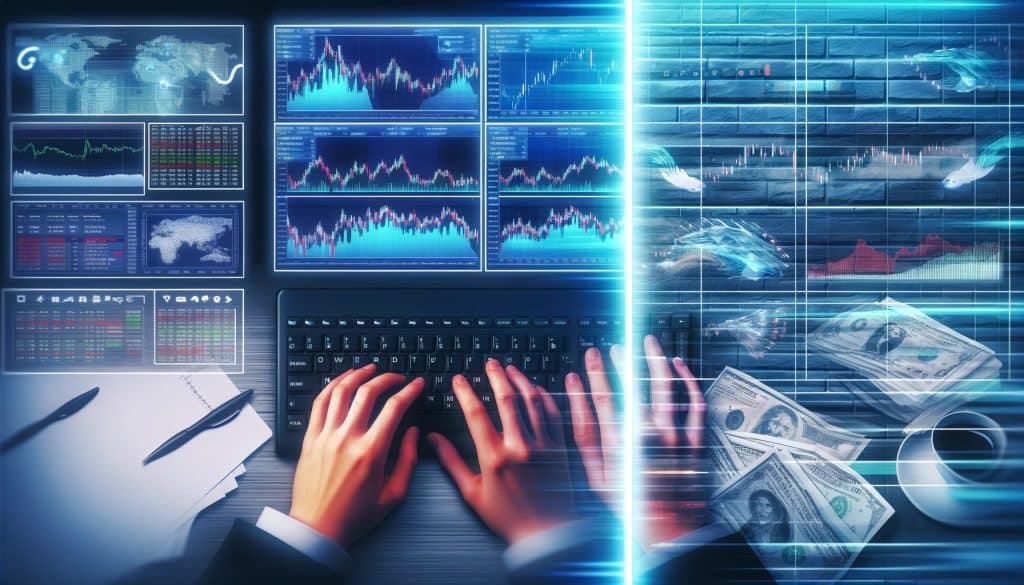
Comparative Analysis
Automated Trading vs Manual Trading: Efficiency
Automated trading systems can handle complex calculations and execute multiple trades across various markets simultaneously, offering unparalleled efficiency. Manual trading, while less efficient in terms of speed and volume, allows for agility and adaptation to live market changes that automated systems may not quickly recognize.
Automated Trading vs Manual Trading: Control
Automated trading offers less control over individual trades, as decisions are made based on pre-set algorithms. In contrast, manual trading allows traders to leverage their insights and control every aspect of their trading decision, adapting strategies on the fly based on real-time market analysis.
Automated Trading vs Manual Trading: Emotional Impact
Automated trading removes the emotional element from trading, potentially leading to more disciplined and consistent results. Manual traders, however, must contend with emotional biases, which can sometimes lead to irrational decisions but also allow for gut-feel decisions that could outperform any algorithm in certain scenarios.
Hybrid Trading Strategies
Combining the Best of Both Worlds
Many traders opt for a hybrid approach, utilizing automated systems for market analysis and trade execution while applying manual oversight for strategy adjustments and risk management.
Example: A trader might use an automated system to identify potential entry points based on technical analysis but choose to manually review and execute these trades based on current market news or their assessment of market sentiment.
Real-world Examples of Hybrid Trading Strategies
Consider a hedge fund that employs a sophisticated algorithm to scan the markets for arbitrage opportunities but relies on human traders to evaluate the risk and potential impact of significant geopolitical events or economic announcements. This blend of automation for efficiency and human judgment for insight represents the essence of hybrid trading.
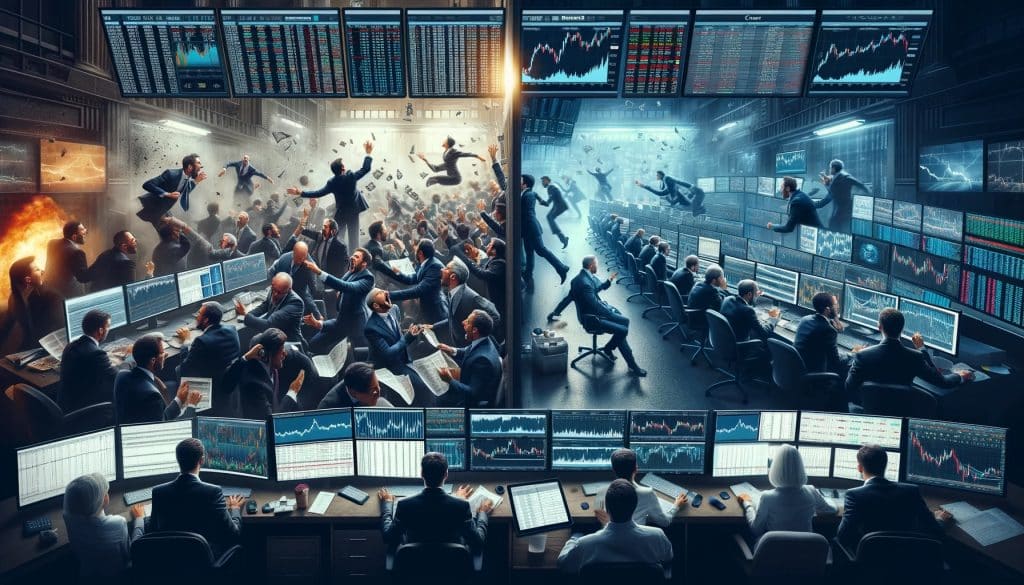
Choosing the Right Approach for You
Personal Risk Tolerance
Your comfort with risk and potential losses plays a crucial role in deciding between automated, manual, or hybrid trading. Automated trading might suit those with a lower tolerance for the emotional stress of trading, while manual trading could appeal to those who prefer hands-on control and decision-making.
Investment Goals
Short-term traders might lean towards automated trading to capitalize on quick, small gains, whereas long-term investors may prefer the manual approach, focusing on fundamental analysis and longer investment horizons.
Market Knowledge and Experience
Experienced traders might find manual or hybrid trading more rewarding, leveraging their deep market understanding and insights. In contrast, newcomers might start with automated trading to gain exposure while building their market knowledge.
Implementing a Balanced Trading Strategy
Setting Up Your Trading Environment
Creating an optimal trading environment involves selecting the right tools and platforms that offer the functionalities needed for your chosen trading approach, whether it be sophisticated charting software for manual trading or robust algorithmic trading platforms for automated strategies.
Developing a Trading Plan
A comprehensive trading plan should outline your strategies, risk management techniques, and criteria for entering and exiting trades. This plan serves as a roadmap, whether you’re trading manually, using automation, or a mix of both.
Continuous Learning and Adaptation
The markets are ever-evolving, and so should your trading strategy. Continuous learning through market research, analysis, and adapting your approach based on market feedback is essential for long-term success.
The Future of Trading: Automated, Manual, or Hybrid?
Predictions and Trends
The future of trading is likely to see an increase in hybrid strategies, as technological advancements continue to blend with human insight. The growth of AI and machine learning could further enhance automated trading systems, while the value of human intuition and decision-making remains irreplaceable in certain aspects of trading.
Conclusion: Summing Up the Key Takeaways
Finding the right balance between automated and manual trading is a personal journey that depends on various factors, including risk tolerance, investment goals, and market knowledge. By understanding the strengths and limitations of each approach and considering how they align with your trading style and objectives, you can develop a strategy that maximizes your strengths and compensates for your weaknesses.

FAQs on Automated Trading vs. Manual Trading
How can a beginner get started with automated trading?
Start with platforms offering user-friendly automated trading systems and educational resources. Begin with demo accounts to test strategies without financial risk.
Is manual trading suitable for all types of markets?
Yes, manual trading can be applied across all markets, but success depends on the trader’s ability to analyze and adapt to market conditions.
What are the key factors to consider when developing a hybrid trading strategy?
Consider how automated tools can enhance your market analysis and execution speed while identifying areas where manual intervention provides strategic value.
How do market conditions affect the choice between automated and manual trading?
Volatile markets might benefit from the quick execution of automated trading, while stable markets might offer more opportunities for manual analysis and decision-making.
Can automated trading completely replace manual trading in the future?
While automated trading will continue to grow, the nuanced understanding and adaptability of human traders ensure that manual trading remains a vital component of the financial markets.

